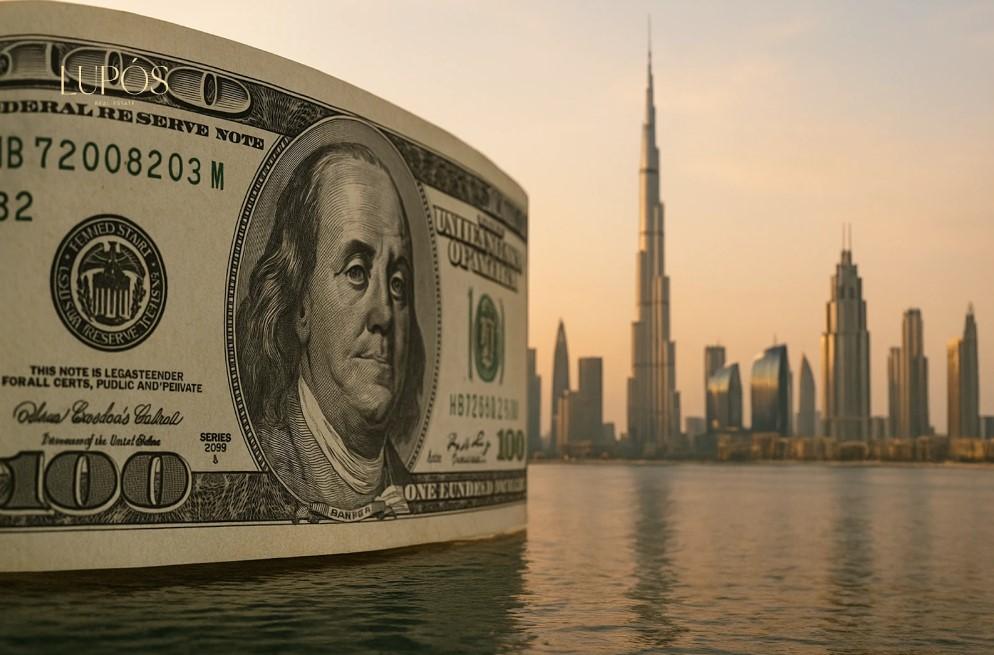Reviews
How Interest Rate Changes Are Affecting Real Estate Investment in Dubai

Interest rate fluctuations have emerged as a critical factor shaping Dubai’s real estate investment landscape. The UAE’s monetary policy decisions directly impact borrowing costs, investment strategies, and market dynamics across both residential and commercial property sectors. Understanding these rate changes is essential for investors navigating Dubai’s evolving real estate market, as platforms like Lupos demonstrate through their comprehensive market analysis.
How the Dollar Peg Influences Dubai’s Rates
Dubai’s interest rate environment is fundamentally shaped by the UAE dirham’s peg to the US dollar, creating a direct correlation between Federal Reserve decisions and local borrowing costs. This currency arrangement means that UAE interest rates typically follow US rate movements, impacting mortgage affordability and investment calculations.
The dollar peg provides stability but limits monetary policy independence, meaning Dubai’s real estate market must adapt to US economic conditions. This dynamic creates unique investment opportunities and challenges as rate changes affect both domestic and international investor behavior.
Impact on Mortgage Affordability and Demand
Rising interest rates significantly affect mortgage affordability, directly influencing property demand across Dubai’s residential market. Higher borrowing costs reduce purchasing power for leveraged buyers, potentially cooling demand and affecting transaction volumes in price-sensitive market segments.
Key affordability impacts include:
- Monthly Payment Increases. Higher rates substantially increase monthly mortgage payments for new borrowers
- Qualification Criteria. Banks tighten lending standards as debt-to-income ratios become less favorable
- Cash Buyer Advantage. Reduced financing competition gives cash buyers increased negotiating power
Conversely, lower interest rates stimulate demand by improving affordability and encouraging investment activity. The mortgage market’s sensitivity to rate changes makes it a leading indicator of broader real estate market trends and investor sentiment shifts.
Property Price Movement: Rises and Falls
Interest rate changes create complex price dynamics in Dubai’s real estate market, with different property types responding uniquely to borrowing cost fluctuations. Rising rates typically exert downward pressure on prices as reduced affordability decreases buyer competition, while falling rates can stimulate price appreciation through increased demand.
The relationship between rates and prices varies across market segments, with luxury properties often showing different sensitivity patterns compared to affordable housing.
Effect on Foreign Investment and Currency Dynamics
International investors represent a significant portion of Dubai’s real estate market, making currency and interest rate relationships crucial for investment flows. Exchange rate movements combined with interest rate differentials affect the relative attractiveness of Dubai property investments compared to alternative global markets.
Foreign investment considerations include:
- Currency Hedging Costs. Rate changes affect hedging expenses for international investors managing currency exposure.
- Comparative Returns. Rising UAE rates may improve Dubai’s investment appeal relative to other markets.
- Capital Flow Patterns. Interest rate differentials influence international capital allocation decisions.
The interaction between local interest rates, currency stability, and global investment trends creates complex dynamics that sophisticated investors must navigate when evaluating Dubai real estate opportunities.

Investor Behavior: Risk and Opportunity
Interest rate environments significantly influence investor behavior patterns in Dubai’s real estate market. Rising rates typically encourage more conservative approaches as borrowing costs increase, while falling rates often stimulate aggressive investment strategies and increased risk tolerance.
Experienced investors adapt their strategies based on rate cycles, potentially shifting between different property types and financing structures. The cost of capital changes affect development projects and portfolio refinancing decisions, creating both challenges and opportunities for market participants.
Residential vs. Commercial Market Effects
Interest rate impacts vary significantly between residential and commercial real estate sectors in Dubai. Residential markets typically show more immediate sensitivity to rate changes due to individual buyer financing dependence, while commercial markets may demonstrate different response patterns based on institutional investor strategies.
Sector-specific impacts include:
- Residential Market. Direct mortgage cost effects on affordability and buyer qualification standards.
- Commercial Properties. Cap rate adjustments and investment yield recalculations affecting valuation models.
- Mixed-Use Developments. Complex interactions between residential and commercial financing requirements.
Commercial real estate investors often employ sophisticated financing structures that may provide some insulation from rate changes, while residential buyers typically face more direct cost impacts. These differential effects create varying investment opportunities across property sectors during different rate environments.
Conclusion: Navigating the Interest Rate Cycle
Successfully navigating interest rate cycles in Dubai’s real estate market requires understanding the complex relationships between borrowing costs, investor behavior, and property values. Rate changes create both challenges and opportunities that informed investors can leverage for optimal portfolio performance.
The key to successful real estate investment during rate fluctuations lies in maintaining flexibility, understanding market fundamentals, and adapting strategies to changing financial conditions. Dubai’s unique economic position and growth prospects provide resilience against rate volatility, but investors must remain vigilant about timing and market positioning.
Long-term real estate investment success in Dubai depends on recognizing that interest rate cycles are temporary while the emirate’s fundamental growth drivers remain strong. By understanding rate impacts on affordability, demand patterns, and investment flows, investors can make informed decisions that capitalize on market opportunities while managing associated risks effectively.

-

 World1 week ago
World1 week agoEthiopian volcano erupts for first time in thousands of years
-

 Health2 days ago
Health2 days ago8 kittens die of H5N1 bird flu in the Netherlands
-

 Legal6 days ago
Legal6 days agoUtah Amber Alert: Jessika Francisco abducted by sex offender in Ogden
-

 US News6 days ago
US News6 days agoExplosion destroys home in Oakland, Maine; at least 1 injured
-

 Health6 days ago
Health6 days agoMexico’s September human bird flu case confirmed as H5N2
-

 Legal3 days ago
Legal3 days ago15 people shot, 4 killed, at birthday party in Stockton, California
-

 World7 days ago
World7 days agoWoman killed, man seriously injured in shark attack on Australia’s NSW coast
-

 Health5 days ago
Health5 days agoMarburg outbreak in Ethiopia rises to 12 cases and 8 deaths




